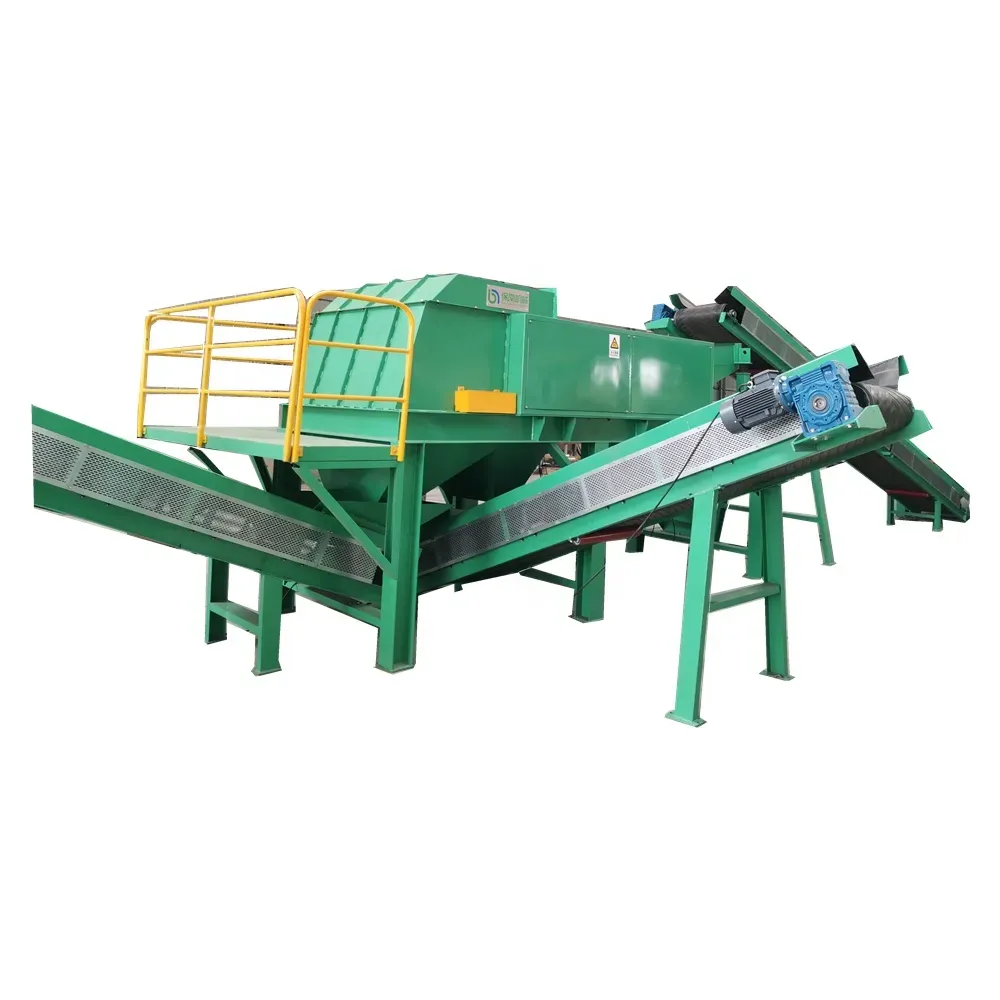
10 月 . 13, 2024 07:36 Back to list
How Does a Copper Wire Granulator Work?
Copper wire granulators are essential machines designed to efficiently process and recycle copper wires, separating the copper from the insulation material. This recycling process not only helps in recovering valuable metals but also contributes to environmental sustainability by reducing waste. Understanding how a copper wire granulator works can provide valuable insights into both the machinery involved and the benefits of copper recycling.
The process begins with the collection of scrap copper wire, often derived from old electrical appliances, vehicles, or construction debris. Once the copper wire is gathered, it undergoes a series of steps in the granulator to be processed effectively.
1. Feeding the Wire The first step involves feeding the copper wire into the granulator. This is often done using a conveyor belt system, which ensures a steady flow of material into the machine. It's crucial that the wire is free of contaminants such as dirt or plastics before entering the granulator, as these materials can interfere with the efficiency of the cutting and separation processes.
2. Shredding Once inside the machine, the copper wire is shredded into smaller pieces. This is achieved through a series of blades that rotate at high speeds. The shredding process is essential, as it prepares the wire for further processing by breaking it down into manageable fragments. The size of the output can be adjusted depending on the requirements of the recycling process.
3. Granulation After shredding, the wire fragments enter the granulation phase. Here, the pieces are further reduced in size, often down to a granular form. This is accomplished using a combination of mechanical forces and gravity. The focus during granulation is to separate the copper from the insulation for maximum efficiency.

4. Separation Once granulation is complete, the machine employs various separation techniques to isolate the copper from the plastic insulation. This is typically done using air classifiers, vibrating screens, or magnetic separators. By utilizing differences in density and weight, the granulator can effectively separate the copper from the non-metal contaminants. The result is high-purity copper granules that can be readily sold or further processed.
5. Collection The final step in the process is the collection of the separated materials. The copper granules are collected in bins or bags for easy transportation and sale. The insulation waste may also be collected and processed further, depending on the recycling capabilities of the facility.
Benefits of Using Copper Wire Granulators
Copper wire granulators offer several advantages, making them an essential part of the recycling industry. First and foremost, they significantly increase the efficiency of metal recovery. By automating the separation and recycling process, manufacturers can recover up to 99% of the copper content from scrap wires.
Furthermore, using a copper wire granulator reduces the environmental impact of waste disposal. Instead of ending up in landfills, precious metals can be recycled and reused in various applications, thus conserving natural resources. This practice not only contributes to a more sustainable future but also offers financial benefits to businesses in the recycling sector.
In conclusion, copper wire granulators play a vital role in the recycling process by efficiently transforming scrap wire into valuable copper granules. Through a series of mechanical operations—shredding, granulation, and separation—these machines enable the recovery of copper and contribute to environmental conservation efforts. As the demand for recycled materials continues to grow, the importance of copper wire granulators in the recycling industry will only increase.
Latest news
Unveiling the Power of Eddy Current Separator
NewsSep.25,2024
Transform Your Home Recyclin:home metal shredder
NewsSep.25,2024
The Future of Waste Management with Recycling Line Picker
NewsSep.25,2024
The Benefits of a Metal Recycling Plant
NewsSep.25,2024
Revolutionize Material Separation with Onwang Technology
NewsSep.25,2024
Innovative Waste Management: Unveiling the MSW Sorting Plant
NewsSep.25,2024